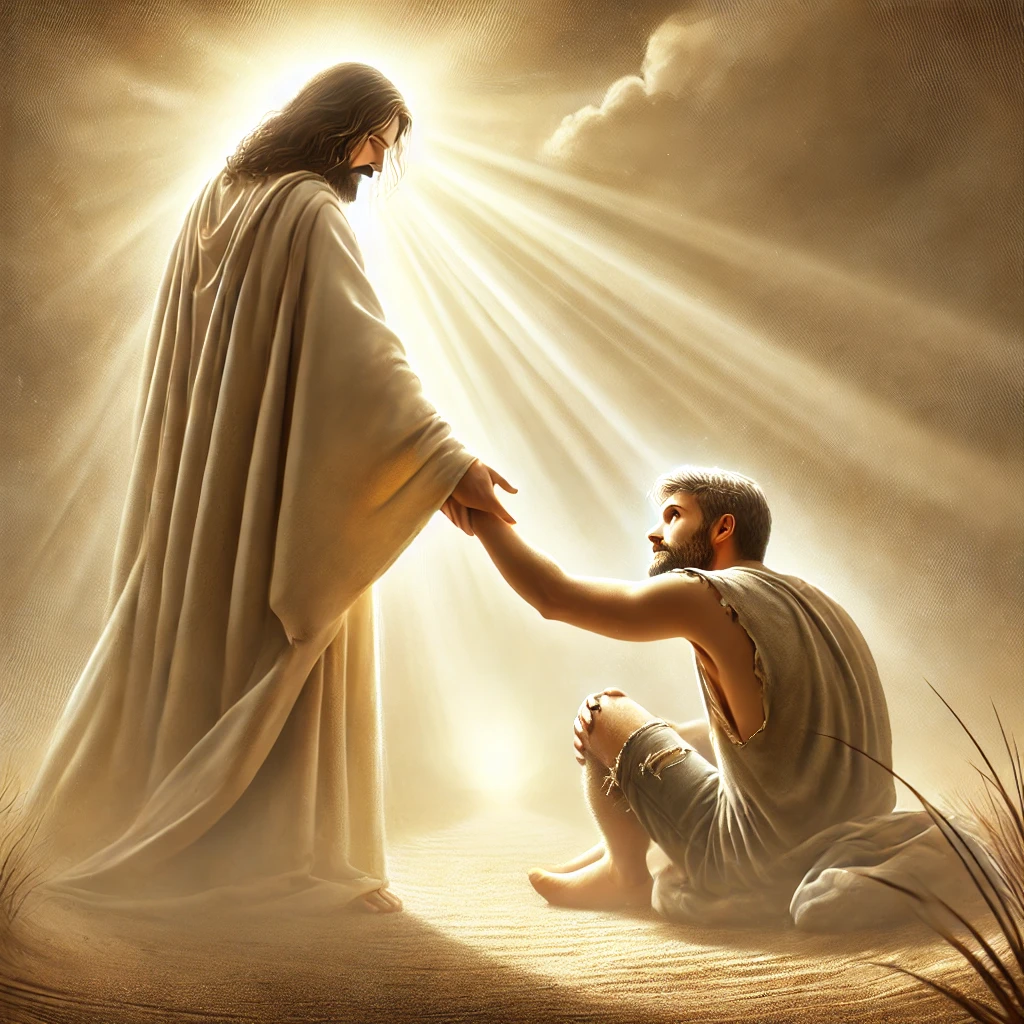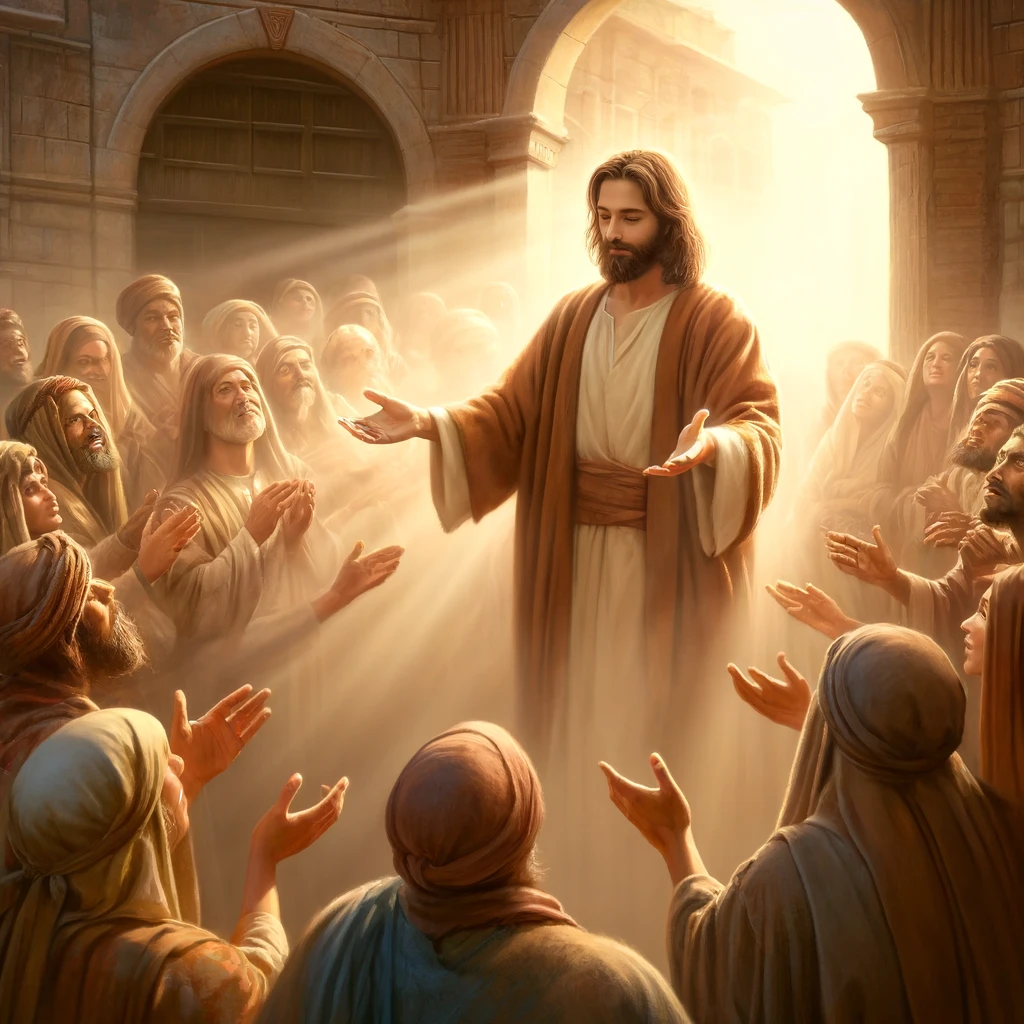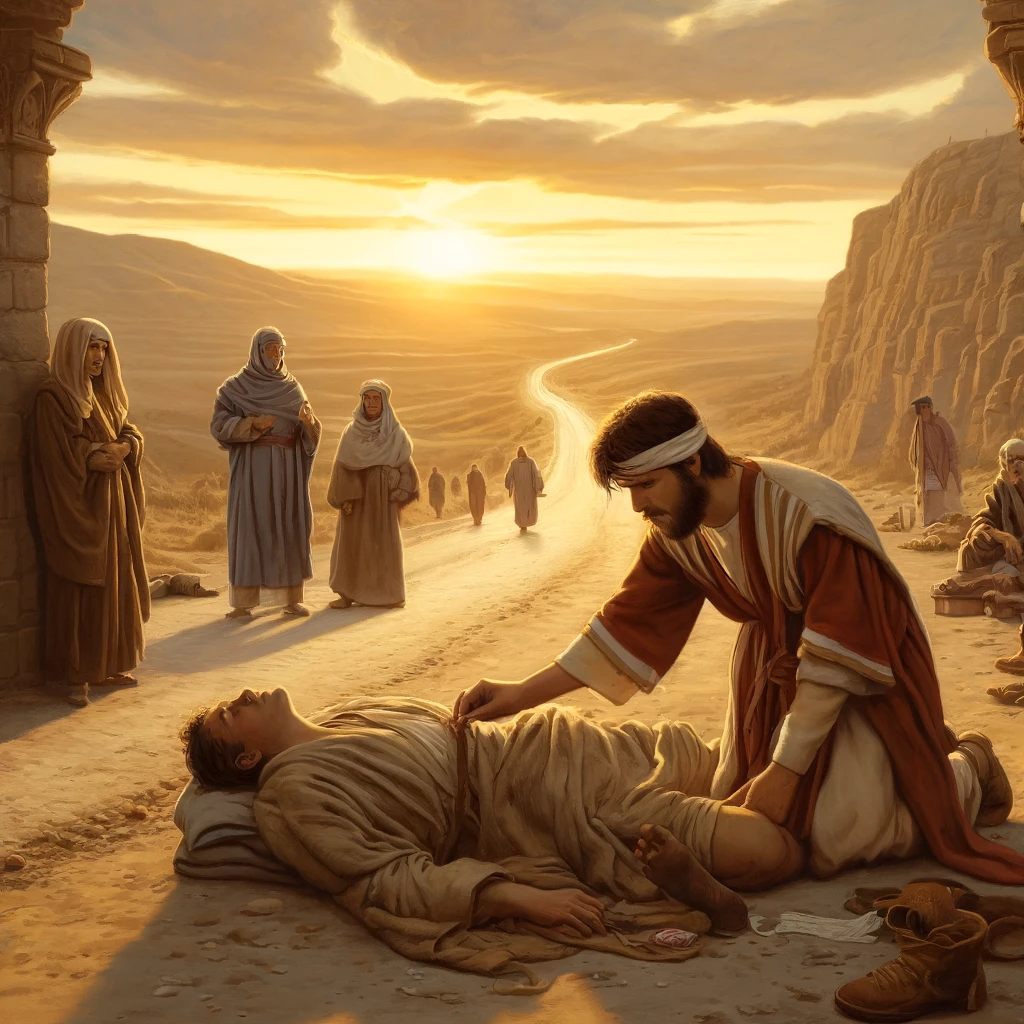Have you ever wondered why Jesus had to sacrifice Himself? It’s a question many of us have asked, and the answer is rooted in the incredible love that God and Jesus have for us. As Christians, we believe that Jesus’ sacrifice on the cross wasn’t just a historical event—it’s the ultimate expression of God’s love for humanity. Through His death, Jesus showed us the depth of God’s love and gave us a way to be forgiven and restored to a relationship with our Creator. In this article, I’ll share what the Bible teaches about Jesus’ sacrifice and why it matters for us today.
Understanding the Old Testament’s Sacrificial System and God’s Plan for Love and Redemption
Before we talk about why Jesus had to sacrifice Himself, let’s take a look at the Old Testament’s sacrificial system. In the early days, people made sacrifices to God as a way of seeking forgiveness for their sins. It was a reminder that sin has consequences, but it was also a foreshadowing of God’s greater plan—a plan motivated by love. God always intended to send His Son, Jesus, to be the perfect sacrifice, showing just how much He loves us and wants to bring us back into a loving relationship with Him.
- God’s Heart in the Old Testament: Even in the Old Testament, God’s love was present. The sacrificial system wasn’t just about rules—it was about pointing us toward the ultimate act of love that was coming through Jesus.
- The Promise of a Savior: The Bible is full of promises that one day, God would send a Savior to take away the sins of the world. Isaiah 53 speaks of this Savior who would bear our sins, and that Savior is Jesus.
Why Jesus’ Sacrifice Shows Us the Ultimate Love

The crucifixion of Jesus is not just a tragic story—it’s the greatest love story ever told. Jesus willingly gave up His life so that we could experience God’s love in a way that transforms us from the inside out. He didn’t have to die, but He chose to because of His deep love for you and me.
- A Sacrifice of Love, Not Obligation: Jesus’ death wasn’t something He was forced into. It was a choice—a choice motivated by His love for humanity. As John 15:13 says, “Greater love has no one than this: to lay down one’s life for one’s friends.”
- Substitutionary Atonement as Love in Action: When we say that Jesus died in our place, it’s because He took on the punishment we deserved. But this isn’t about guilt—it’s about grace. Jesus loved us so much that He took on our sins so that we could live freely in God’s love.
- Faith and Love Leading to Salvation: Believing in Jesus’ sacrifice isn’t just about understanding His death—it’s about experiencing the love that leads to salvation. When we trust in Jesus, we are embraced by God’s love, and nothing can separate us from it.
The Impact of Jesus’ Sacrifice on Our Lives Today
So, what does Jesus’ sacrifice mean for us in our everyday lives? It’s not just a story we remember on Easter—it’s something that affects how we live every day. Jesus’ love changes everything.
- Living in the Freedom of God’s Love: Because of Jesus’ sacrifice, we don’t have to live with guilt or shame. His love covers our sins, and we are invited to live in the freedom and joy of God’s love every day.
- How We Love Others Because of Jesus’ Love: Jesus calls us to love others just as He loved us. His sacrifice teaches us that love isn’t just a feeling—it’s an action. When we understand the depth of God’s love for us, we are empowered to love others, even when it’s difficult.
- The Ongoing Power of Jesus’ Sacrifice in Our Lives: Jesus’ death and resurrection weren’t just one-time events—they have an ongoing impact. Every day, we are reminded that we are loved, forgiven, and part of God’s family because of Jesus’ incredible sacrifice.
Reflecting on Jesus’ Sacrifice: An Invitation to Experience God’s Love
Jesus’ sacrifice invites us to reflect on the depth of God’s love and to embrace that love fully. It’s not just about understanding theology—it’s about experiencing a relationship with God, a relationship built on love.
- Personal Reflections on God’s Love: Take some time to reflect on what Jesus’ sacrifice means to you personally. How has His love changed your life? How does it continue to shape who you are?
- Growing in Faith and Love: As we grow in our faith, we grow in our understanding of God’s love. Jesus’ sacrifice is the foundation of that faith, and it draws us closer to God every day.
Conclusion
In the end, Jesus’ sacrifice is all about love—the love God has for you, the love Jesus showed on the cross, and the love we are called to live out in our daily lives. If you’ve ever doubted whether God loves you, remember this: He loves you so much that He sent His Son to die for you so that you could live in freedom, joy, and relationship with Him. The cross isn’t just a symbol of sacrifice—it’s the ultimate expression of God’s love for us. Let’s embrace that love and let it transform every aspect of our lives.
Understanding Jesus’ Sacrifice in Light of His Baptism
As we reflect on Jesus’ incredible love displayed through His sacrifice, it’s important to also consider other key moments in His life that revealed His purpose, like His baptism. Have you ever wondered why Jesus, who was sinless, needed to be baptized? This act wasn’t about cleansing but about identifying with us and setting an example of obedience to God. To learn more about the significance of Jesus’ baptism, check out our article “Why Did Jesus Need to Be Baptized?“ for a deeper understanding of how His baptism fits into the larger story of His love and sacrifice.
Discover More About Jesus’ Sacrifice
If you’re looking to explore more about the profound love behind Jesus’ sacrifice and how it continues to impact Christians today, there are many great resources available. One excellent study on this topic is found at Bible.org, which provides in-depth articles on the significance of the cross and Jesus’ ultimate sacrifice. You can find more information and resources at https://bible.org/.
FAQ: Why Did Jesus Have to Sacrifice Himself?
1. Why did Jesus choose to die on the cross?
Jesus chose to die on the cross out of His deep love for humanity. His sacrifice was God’s plan to redeem the world and offer forgiveness for sins. Jesus’ death was the ultimate act of love, taking on the punishment for our sins so we could be reconciled with God and live in a restored relationship with Him.
2. Couldn’t God have forgiven us without Jesus dying?
While God is loving and merciful, He is also just. Sin creates a separation between humanity and God, and the penalty for sin is death (Romans 6:23). Jesus’ sacrifice satisfied God’s justice while also demonstrating His immense love by paying the price for our sins. It was the perfect balance of justice and mercy.
3. What is the significance of Jesus’ sacrifice in my daily life?
Jesus’ sacrifice allows us to live in the freedom of knowing we are loved, forgiven, and accepted by God. It transforms how we view ourselves and others, motivating us to live lives of love, compassion, and purpose. His sacrifice also reminds us of the power of grace, encouraging us to extend forgiveness and love to others.
4. How does faith in Jesus’ sacrifice lead to salvation?
Faith in Jesus means trusting in His death and resurrection as the only way to be reconciled with God. According to Christian belief, salvation is a gift of grace that we receive through faith. When we accept Jesus’ sacrifice and believe in His resurrection, we are saved from the penalty of sin and given eternal life (Ephesians 2:8-9).
5. What does Jesus’ sacrifice teach us about God’s love?
Jesus’ sacrifice is the ultimate expression of God’s love. It shows us that God loves us so much that He was willing to send His only Son to die for us (John 3:16). His sacrifice demonstrates that God’s love is unconditional, sacrificial, and available to everyone, regardless of their past or present.
6. How can I live in response to Jesus’ sacrifice?
We can live in response to Jesus’ sacrifice by embracing His love and allowing it to transform our lives. This means seeking to love others as He loved us, forgiving those who hurt us, and living out our faith daily. It also means trusting in God’s grace and letting His love guide our decisions, relationships, and actions.
7. What role does the resurrection play in Jesus’ sacrifice?
The resurrection is vital because it proves that Jesus defeated sin and death. While His death paid the penalty for our sins, His resurrection gives us the hope of eternal life. Through His resurrection, we are assured that death is not the end, and we have the promise of new life with God.
8. How can I grow deeper in understanding Jesus’ sacrifice?
To grow deeper in understanding Jesus’ sacrifice, spend time studying the Bible, praying, and reflecting on what His love and sacrifice mean for your life. You can also read books or devotionals that focus on the cross and its significance. Surrounding yourself with a community of believers can also help you grow in your faith.
9. How does Jesus’ sacrifice impact Christian community and fellowship?
Jesus’ sacrifice brings believers together in a unique way, creating a sense of unity and shared purpose. As we reflect on His love and sacrifice, we are called to build communities that reflect that love—supporting, encouraging, and serving one another as the body of Christ. His sacrifice teaches us that we are all connected in His love.
10. Why is Jesus’ sacrifice remembered in Christian traditions today?
Jesus’ sacrifice is remembered because it is central to the Christian faith. It’s the reason why Christians celebrate Easter and partake in communion, which serves as a reminder of His body and blood given for the forgiveness of sins. These traditions help Christians reflect on and honor the incredible love and grace shown through His sacrifice.



